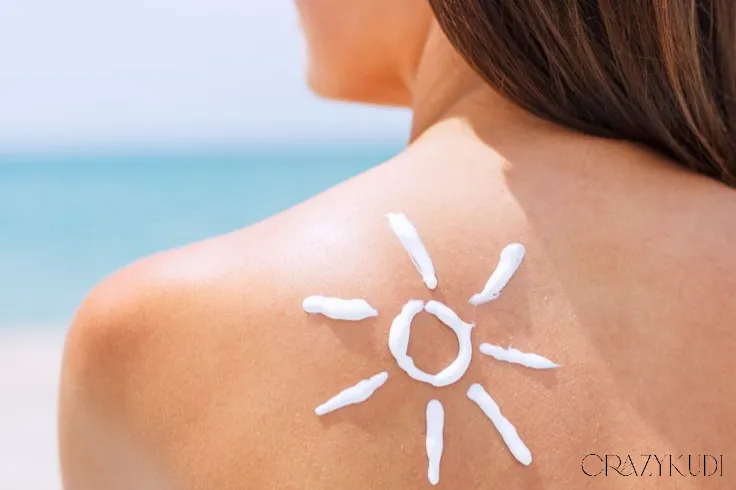When it comes to protecting your skin from harmful UV rays, sunscreen is an absolute essential. Whether you’re heading out for a day at the beach, a walk in the park, or just running errands, choosing the right sunscreen can make a world of difference in your skin’s health and appearance. But with so many options on the market, how do you know which sunscreen is the best for your skin type and needs? As a dermatologist, I’m here to guide you through the process of selecting the perfect sunscreen for your unique skin, ensuring you get the best protection possible.
Why is Sunscreen Important?
First, let’s briefly discuss why sunscreen is so important. Sunscreen acts as a protective barrier against UV radiation from the sun. UV rays are responsible for causing sunburn, accelerating skin aging, and increasing the risk of skin cancer. Regularly using sunscreen can help prevent sunburn, reduce premature aging signs, and minimize your risk of skin cancers like melanoma, basal cell carcinoma, and squamous cell carcinoma.
While sunscreen is vital year-round, it’s especially important during the warmer months when you’re likely to be exposed to more direct sunlight. But no matter the season, applying sunscreen should always be a part of your daily skincare routine.
Also read: What is Sun Protection Factor (SPF)? Why SPF is Crucial for Your Skin Health
Key Factors to Consider When Choosing Sunscreen
- SPF (Sun Protection Factor)
SPF is one of the most important factors to consider when selecting sunscreen. SPF measures how well the sunscreen protects your skin from UVB rays, the type of UV radiation responsible for sunburn. The higher the SPF, the greater the level of protection.
- SPF 15: Provides about 93% protection against UVB rays.
- SPF 30: Blocks 97% of UVB rays.
- SPF 50: Blocks about 98% of UVB rays.
For daily use, an SPF of 30 is typically sufficient for most people. However, if you’re spending a prolonged period of time outdoors or have fair skin, you may want to go for SPF 50 or higher for added protection.
- Broad-Spectrum Protection
It’s important to choose a broad-spectrum sunscreen, which means it protects against both UVA and UVB rays. UVA rays are responsible for premature aging (wrinkles, fine lines, pigmentation) and can penetrate deeper into the skin, while UVB rays cause sunburn and are the primary cause of skin cancer.
A broad-spectrum sunscreen ensures that you are protected from both types of harmful UV rays, providing comprehensive skin protection.

- Sunscreen Type: Chemical vs. Physical
Sunscreens come in two main types: chemical (organic) and physical (mineral). Understanding the differences between the two can help you choose the right option for your skin.
- Chemical Sunscreens: These contain active ingredients like avobenzone, octinoxate, and oxybenzone, which absorb UV rays and convert them into heat, preventing them from penetrating the skin. Chemical sunscreens are often lighter and blend easily into the skin, making them ideal for daily use under makeup.
- Physical (Mineral) Sunscreens: These contain zinc oxide or titanium dioxide, which form a protective barrier on the skin’s surface, reflecting UV rays away from the skin. Physical sunscreens are generally recommended for sensitive skin or individuals who experience irritation from chemical filters.
If you have sensitive skin, you might prefer a mineral sunscreen due to its gentle, non-irritating nature.
- Your Skin Type and Concerns
When choosing a sunscreen, consider your skin type and any specific concerns you may have.
- Oily or Acne-Prone Skin: Look for oil-free, non-comedogenic sunscreens that won’t clog pores. Gel-based or mattifying sunscreens are great for controlling excess oil and shine.
- Dry Skin: Opt for sunscreens that contain moisturizing ingredients like hyaluronic acid, glycerin, or ceramides. A hydrating sunscreen will provide the added benefit of keeping your skin moisturized throughout the day.
- Sensitive Skin: If your skin tends to be irritated by common sunscreen ingredients, choose a sunscreen labeled for sensitive skin. These are typically free from fragrances, alcohol, and harsh chemicals. Mineral sunscreens are often the best choice for sensitive skin.
- Combination Skin: Choose a sunscreen that works well for both the dry and oily areas of your face. A lightweight, non-greasy sunscreen with broad-spectrum protection is often a safe bet.
- Water-Resistance
If you’re planning on swimming or exercising outdoors, water-resistant sunscreen is a must. These sunscreens are designed to stay on your skin even when exposed to sweat or water, offering continued protection during physical activities. However, keep in mind that water-resistant sunscreen still needs to be reapplied after a few hours, especially if you’ve been sweating or swimming.
Also read: What is Vitamin C for Skin? The Complete Guide to Vitamin C Skincare
How to Apply Sunscreen Correctly
Even the best sunscreen can’t protect you if it’s not applied properly. Here’s how to use sunscreen effectively:
- Apply Generously: Use at least 1 ounce (about a shot glass full) to cover your face and body. Many people don’t apply enough sunscreen, which reduces its effectiveness.
- Reapply Regularly: Sunscreen should be reapplied every 2 hours, or more frequently if you’re sweating or swimming.
- Don’t Forget Your Ears, Neck, and Hands: These areas are often neglected but are just as susceptible to sun damage as your face. Apply sunscreen to these areas too.
Final Thoughts
Choosing the right sunscreen is essential to protecting your skin from the harmful effects of UV radiation. Whether you’re looking for something lightweight and non-greasy for daily use or a more intense SPF for outdoor activities, there’s a sunscreen out there for every skin type and lifestyle. Remember to always apply broad-spectrum, SPF 30 or higher sunscreen generously and reapply regularly for maximum protection. With the right sunscreen, you can enjoy the outdoors without worrying about damaging your skin or risking long-term health issues.

